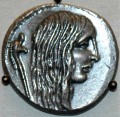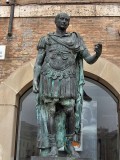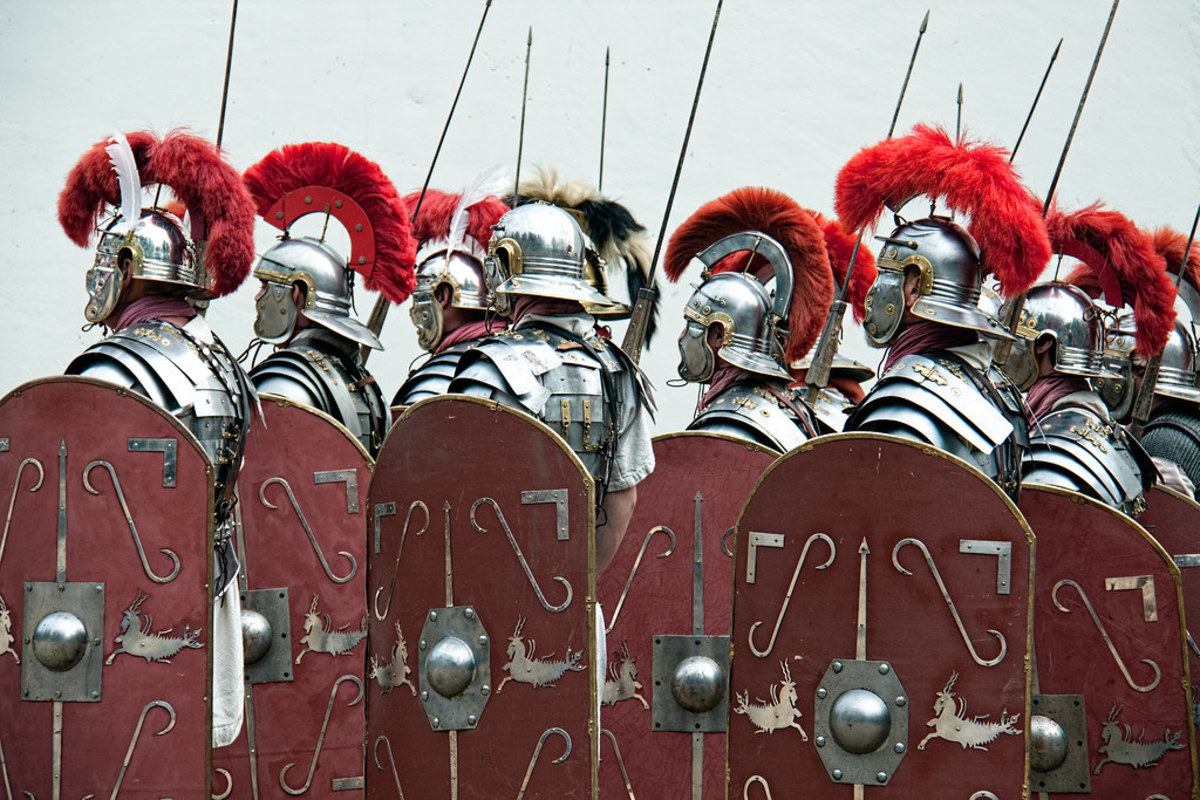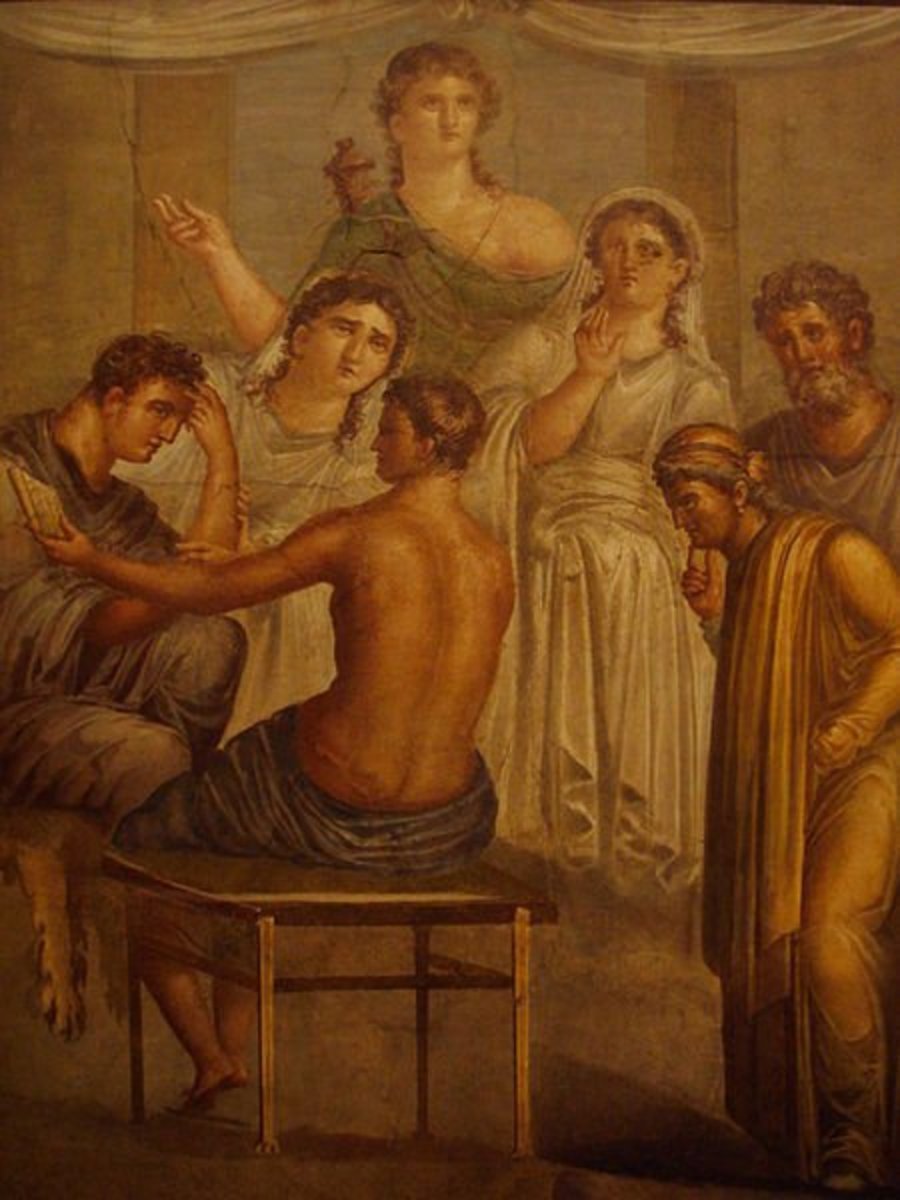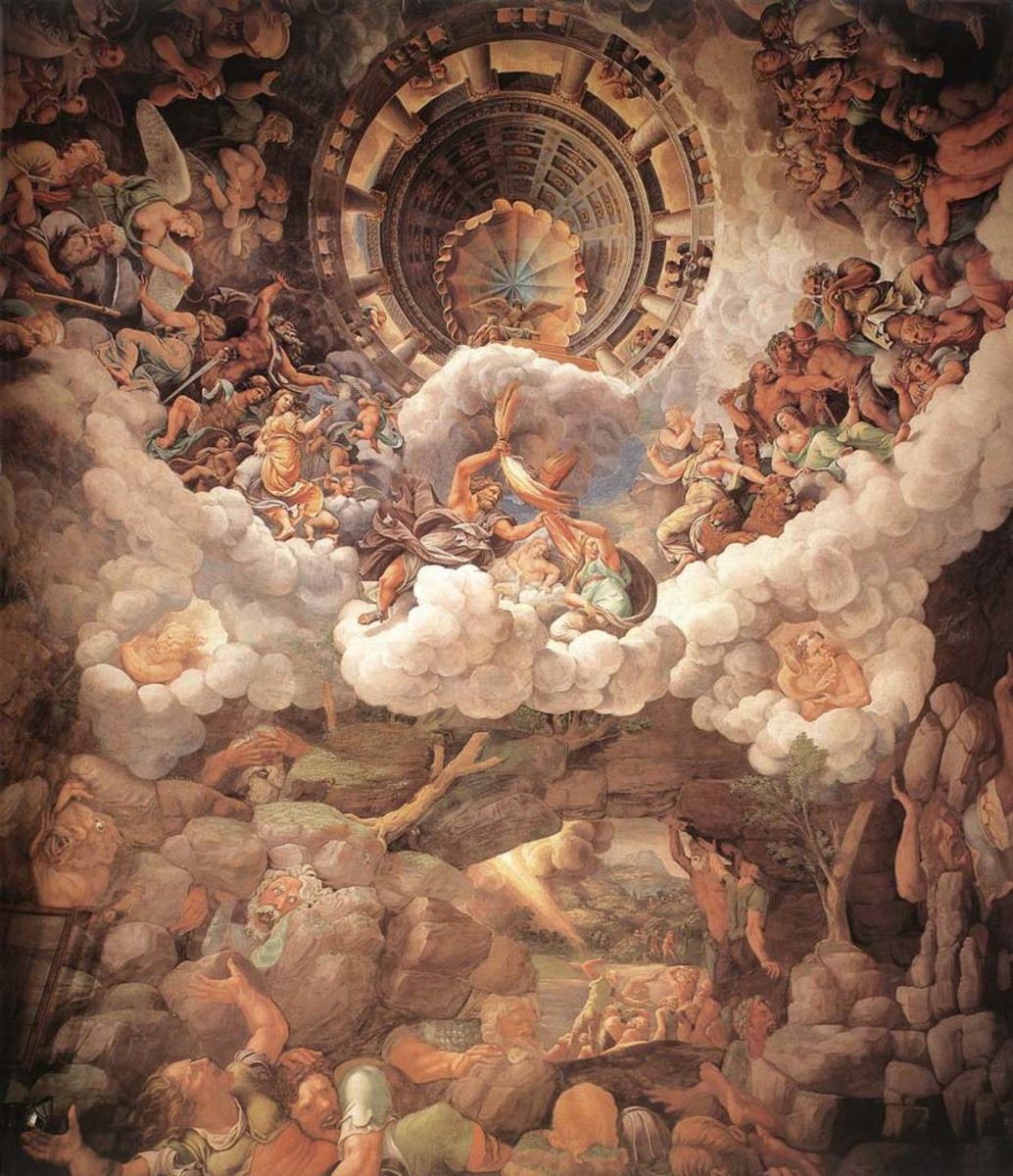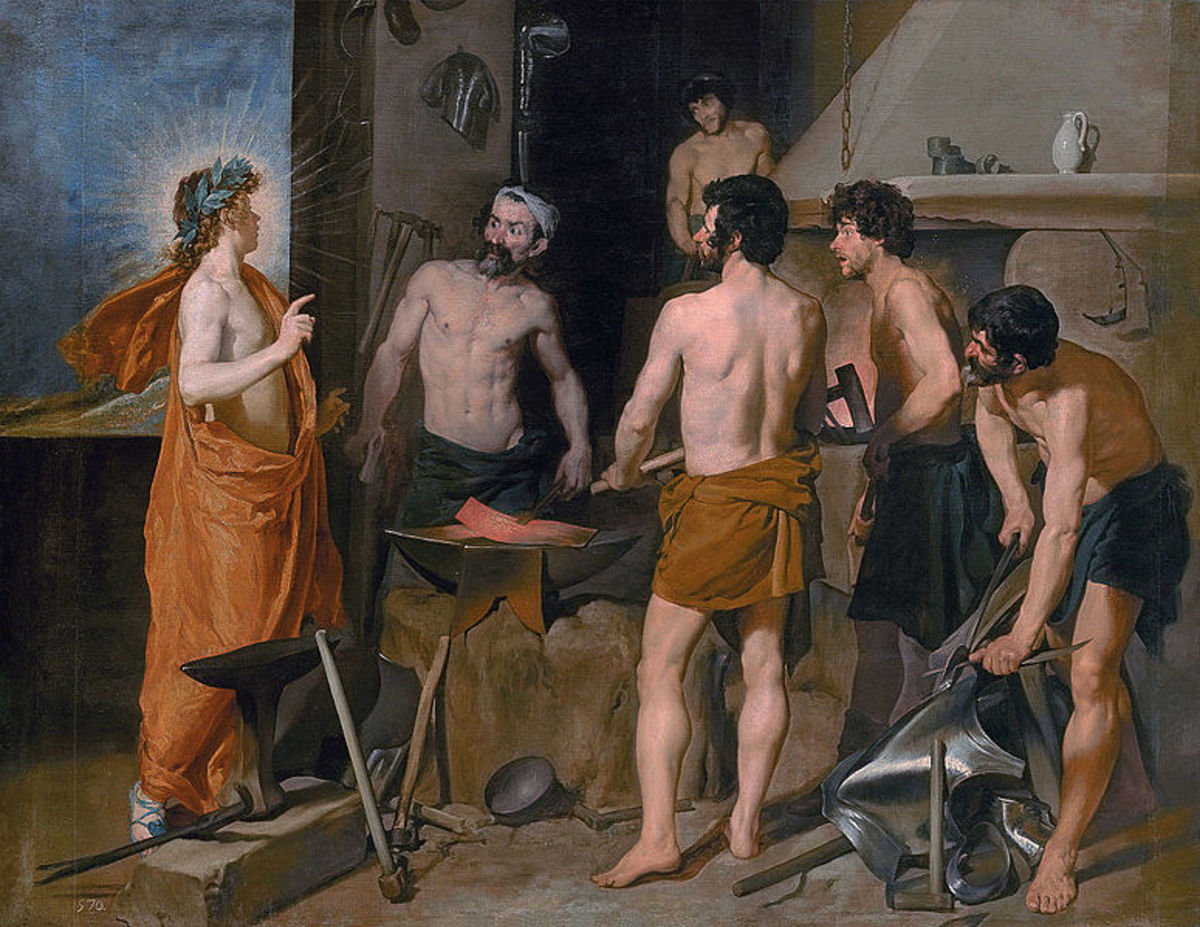- HubPages»
- Education and Science»
- History & Archaeology»
- Ancient History»
- Greek & Roman History
Julius Caesar: The World's Favorite Dictator
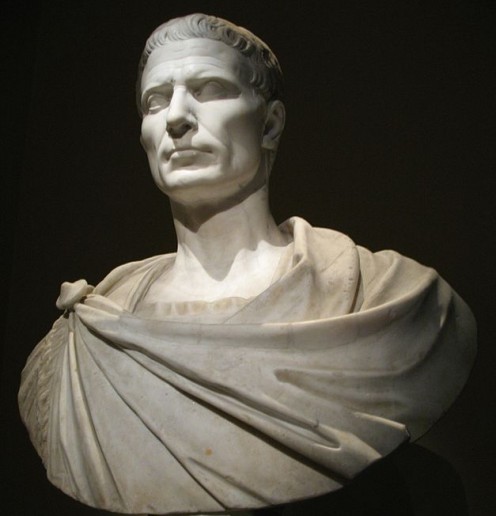
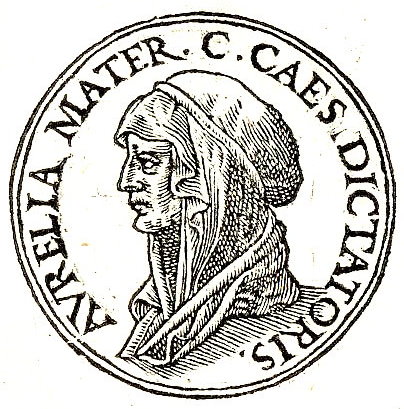
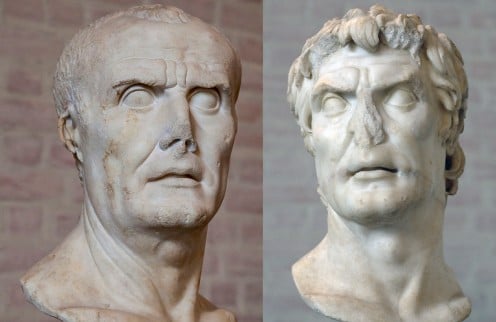
Early Life
Gaius Julius Caesar was born in July of 100 BC to Gaius Julius Caesar and his wife Aurelia. The patrician family was part of the aristocratic society of Rome, as descendants of the Trojan War hero Aeneas, son of the goddess Aphrodite/Venus and Trojan Prince Anchises, but they were far from powerful in the politics of Rome. Though Aurelia's father and grandfather had both served as consul of the Roman Senate, the highest rank her husband obtained was praetor and proconsul, military leader and governor, in Asia Minor. Those appointments may have resulted more from his wife's connections that his own.
The sister of the elder Caesar, Julia, was the wife of Gaius Marius. Marius was an honored statesman and consul of the Roman Senate. The position of consul, of which there were two, was the highest position in the Senate. They were elected to one-year terms and Marius served a record seven times.
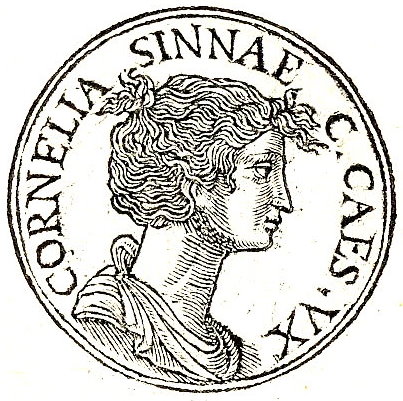
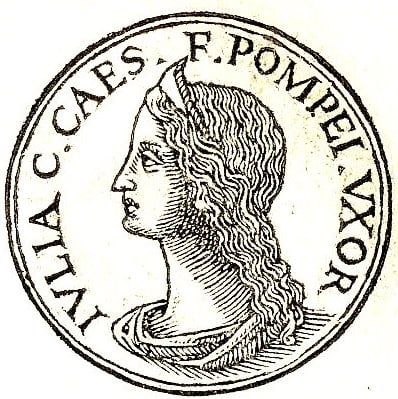
Following the death of his father Gaius, when the young Julius was sixteen, he attempted to build a stronger relationship with his uncle and married the daughter of Marius's close associate, Lucius Cornelius Cinna, Cornelia. The two became parents of a daughter named Julia. Caesar was also named Flamen Dialis, high priest of Jupiter.
There was one problem with this increased relationship, however, as Gauis Marius was engaged in a civil war with Lucius Cornelius Sulla. Marius was the leader of the Populares party which ruled in line with what the people of Rome wanted. Sulla, on the other hand, was the leader of the Optimates party who wanted to increase the authority of the Senate. Neither man was against killing everyone close to the other when the opportunity arose making the act of taking sides dangerous.
When Sulla was eventually victorious, he went after Caesar taking everything that was of value to him. Caesar lost what little inheritance his father had left him, he lost the brides dowry he had received from Cinna and he lost his priesthood. Sulla also ordered Caesar to divorce Cornelia, but he refused. This sent him on the run into the military. Eventually, the bounty on his head was eliminated through pressure from Aurelia's family. Still Sulla believed Caesar was a threat, and Caesar believed it was wise to stay away from Rome as long as Sulla lived.
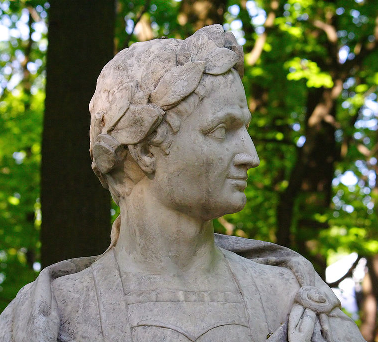
Making a Name
During his time of military service/hiding from Sulla, Caesar became a war hero. The Civic Crown was a crown of oak leaves and was awarded for saving the life of a Roman citizen. This was the second highest honor a Roman could receive, and once received, it was law that Civic Crown holders wear their crowns at all public meetings at which time the wearer would always receive an applause from everyone in attendance. Caesar obtaining this award would, of course, increase his own sense of self-worth.
Caesar was then sent to Bithynia, along the Black Sea in Asia Minor, to obtain a fleet of ships belonging to the king, Nicomedes. This visit would haunt Caesar for the rest of his life, as rumors started spreading about a sexual relationship between the young Caesar and the king. Caesar denied that any such thing had happened during his long stay, but it would earn him the nickname Bride of Bithynia, and his political opponents would bring up the rumors frequently.
In 79 BC, Sulla's death finally made it safe for Caesar to return to Rome. He settled into a modest home, since Sulla had earlier taken all of his money, with his wife Cornelia and sought work as a lawyer. This was a career well suited for Caesar, as he was a gifted speaker. In 75 BC, however, Caesar had arranged a trip to Greece to study in his profession. Along the way he was captured by pirates. When he learned that the men intended to demand 20 talents of silver for his release, Caesar was incensed. He insisted that he was worth far more than that and demanded that they ask for 50 talents. Arranging the ransom took some time for his family, and the entire time of his confinement, Caesar took to ordering around his captures. He also constantly informed the pirates that he would return and kill each of them after his release. Despite their laughing off the claims, once he was released, Caesar did obtain a small fleet and returned to kill his captors.
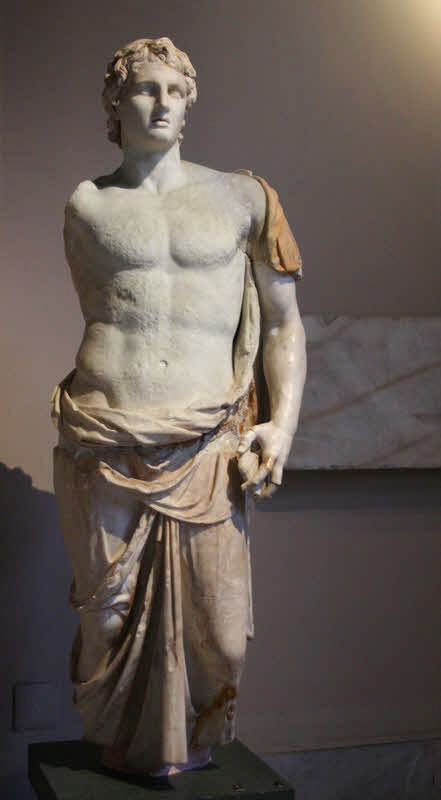
Following the punishment of the pirates, Caesar was sent to quash an uprising in Asia Minor, which increased his status as a military leader. After returning home in 69 BC, he was elected to a quaestor position, basically a financial auditor, in Spain. Before he could leave however, his wife Cornelia died during childbirth. The baby, a son, was stillborn.
He made little noise during his two years in Spain, but it was here that he made a realization about his life. Caesar saw a statue of Alexander the Great, and it hit him that by the time Alexander had turned 32, as Caesar now was, he had conquered the world while he, Julius Caesar, had done nothing. He resolved to change that when he returned to Rome.
Upon his return to Rome in 67 BC, Caesar remarried. This time it was to Pompeia, the granddaughter of Sulla. This appears to have again been a political move, but unlike Cornelia, whom he seemed to truly love, Pompeia would be divorced just a few years later.
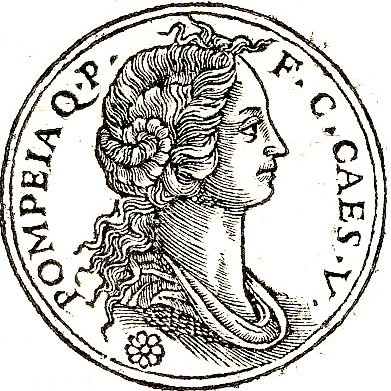
Caesar's Political Push
In 63 BC, Caesar was elected Pontifex Maximus, chief priest of all Roman religion. As wife of the Pontifex Maximus, it became Pompeia's duty to host one of the annual festivals for the Bona Dea, the Good Goddess. This festival was strictly off limits to men as the goddess shared her secret rituals only with women, but in 62 BC, a young man named Publius Clodius Pulcher dressed as a woman and snuck his way inside. Most believed he was trying to seduce Caesar's wife.
Pulcher was caught and prosecuted for sacrilege, disrespecting the sacred, but he was acquitted. Still Caesar petitioned for divorce because his wife had raised the eyebrows of other Romans. He declared that, "Caesar's wife must be above suspicion," showing the growing impression he had of himself.
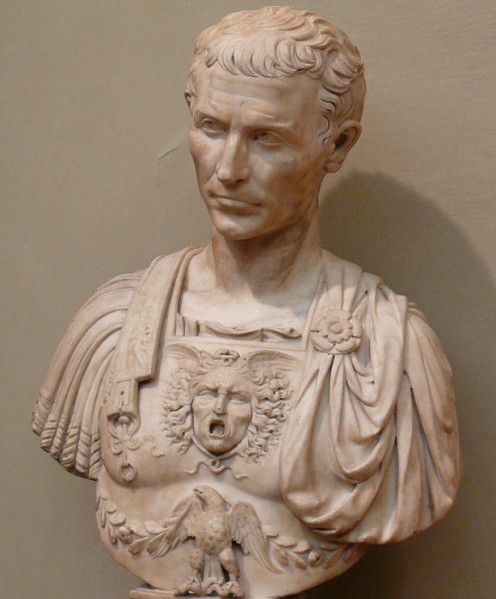
Running for political office was expensive, and Caesar was racking up debt as he worked his way through the Roman political system. For this reason, it was important for him to obtain his next political position before the end of his current post. This was because a government official could not be prosecuted for debt like a private citizen could. Caesar's next post would be back to Spain as governor, but before he left, he befriended Marcus Licinius Crassus. Crassus was the richest man in Rome, and he had an enemy, Gnaeus Pompeius Magnus, better known as Pompey. Caesar agreed to work against Pompey's political agenda in exchange for Crasssus paying off much of Caesar's debt.
While in Spain, Caesar was again militarily and politically successful. He lead troops in the successful conquest of non-Romans in the territory, and for this, he was called imperator. The position of imperator was in reality, nothing more than a military commander, but it sounded impressive. It was in fact, the basis for the title of emperor, but for Julius Caesar it did not have the same meaning.
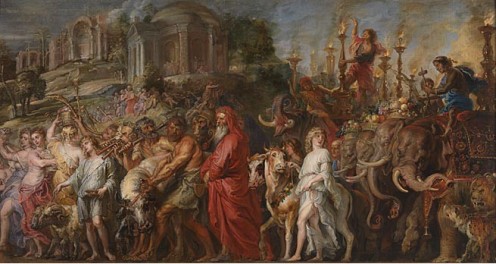
Because of his being named imperator, Caesar was also entitled to a triumph. This was a very big deal for any military leader. It was in effect, being celebrated as king-for-a-day with a parade through Rome. The hero would lead his troops through town wearing a purple and gold cloak. He would make a sacrifice at the temple of Jupiter. There would be a lavish banquet, and the one receiving the triumph would receive honors throughout their lives and at the time of their funeral. There was one problem with Caesar having this celebration. The next election for consul would take place before Caesar's troops would be allowed to return to Rome, and the triumph could not be held without them. He would have had to remain active in the military to receive the triumph, but could only run for consul as a private citizen. Caesar chose to run for the highest office in the land instead.
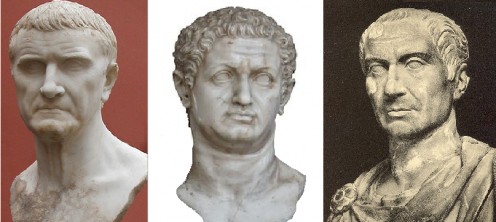
The First Triumvirate
Caesar took the opportunity of running for consul to try to ease the tension between Pompey and Crassus. The feud between the two men resulted from them ruling as co-consuls in 70 BC. Both men believed the other had taken advantage of them in order to increase their own popularity, but Caesar knew that working together, with him, would give all of them much more power than continuing their fight against one another. In reality, Caesar, who already had Crassus in his corner, knew he needed Pompey as well, but constant fighting between the two of them would ruin his plans. In order to get Pompey to agree with this alliance, he gave his own daughter Julia to Pompey in marriage. With the two men now squarely backing Caesar, the relationship became known as the First Triumvirate.
The election of 60 BC became particularly nasty and bribery was rampant. The contest was between three men, but with the help of Crassus and his money, Caesar won along with a man named Marcus Bibulus. Being a plebeian did not help Bibulus with his authority in the Senate, and with Pompey and Crassus supporting Caesar, he had little chance of contesting what Caesar wanted. His first contest against Caesar went so terribly that Bibulus stopped attending Senate meetings. The year 59 BC became known as the year of Julius and Caesar instead of the year Bibulus and Caesar, as Caesar had complete control over the politics of Rome. Bibulus resulted in mudslinging and name calling referring to 59 as the year of the Queen of Bithynia.
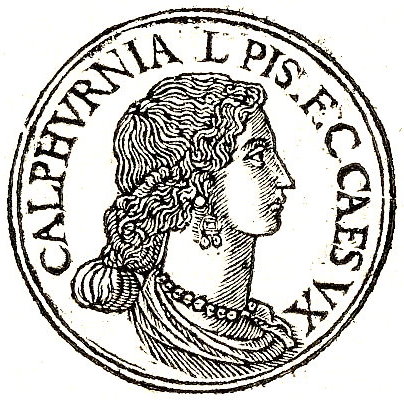
By the end of his year as consul, Caesar arranged to further his own career. The Senate named him proconsul of the woods and paths of Italy, thereby making him in charge of nothing. He named himself proconsul of Gaul, modern day France, and Illyricum, modern day Albania, instead. He had also married again. This time it was to Calpurnia, the daughter of Lucius Calpurnius Piso Caesoninus. Caesar also worked to get his new father-in-law, who was one of the leaders of the Populares, elected consul for the following year.
Gallic Wars
Knowing that the Senate could take action against him as soon as his year as consul was over, Caesar arranged for his time in Gaul to run five years instead of the traditional one year, then he fled town on his last day of power. When the leaders of Gaul learned Julius Caesar was coming, they started preparing for battle. Caesar wasted no time moving in and started defeating any tribes they faced. His troops started working their way toward Britain.
Despite Caesar's growing success in Gaul, things back home in Rome were falling apart. Publius Clodius Pulcher, the same man who disgraced Caesar's wife Pompeia during the Bona Dea festival, was causing unrest by inciting the lower classes to violence. In addition, Crassus and Pompey's unity was coming undone. Without Caesar there to act as a go between, the men were not only reverting back to their old beliefs, but both were also growing upset at Caesar's increased fame. The three met in Lucca in 56 BC where Caesar got them back on board with his program, and all agreed that Crassus and Pompey would seek consulship again the following year, 55 BC. Once they were in power, they were to extend Caesar's time in Gaul then place Crassus over Syria. Pompey, who was already ruling over Spain would then return to that position. As Caesar had known, the three of them together had enough power to accomplish all of it.
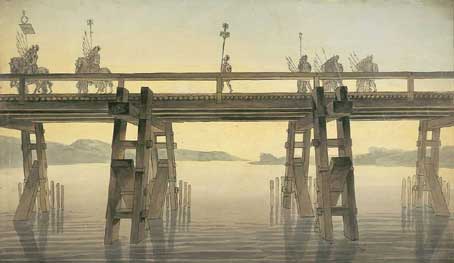
In 55 BC, Caesar had a bridge built over the Rhine River, but he underestimated the manpower it would take to gain any foothold in Britain. He returned to Gaul and built up his troops to make another attempt on Britain the following year. He got farther on his second attempt but the colonies in Gaul were in revolt over a shortage of food and Caesar was force to stop his military advance and return to take care of administrative matters.
While Caesar was in Britain, his daughter Julia died. By all accounts, Pompey was deeply in love with Julia and she with him. In fact, when his year as consul in 55 ended, he was supposed to return to Spain, but opted to stay in Rome with his wife instead. While Pompey was still consul, he had been caught up in a riot and his bloodstained robe was taken to Julia. She miscarried a child believing her husband dead, but despite finding out later he was still alive, the miscarriage had taken a toll on her. The following year she died during childbirth losing the baby as well. Pompey and Caesar were devastated as were the Roman people who insisted that she be buried in the Field of Mars.
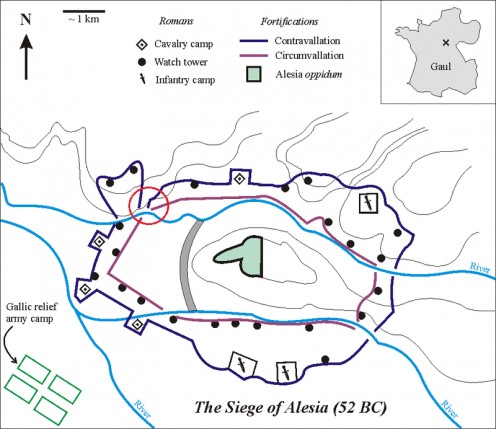
In 52 BC, the Gauls tried one final time to drive Caesar out of their territory. The Arverni tribe lead by their chieftain Vercingetorix joined forces with several other tribes and had some success at defeating Caesar until they arrived at Alesia. The Gauls had taken refuge in a fort at the top of a hill. Caesar knew that fighting a walled city uphill would be difficult and determined that the best course of action would be to cut the soldiers and the people of the city off from all sources of water and supplies. In order to ensure that no help got through, Caesar had his own wall and trenches built around the existing walls of the city. Before the first wall, called the circumvallation, could be completed however, a handful of Vercingetorix's men managed to escape. Concerned that reinforcements would be on the way, Caesar had yet another wall built, the contravallation, outside of their first one. His men were then stationed between his own two walls.
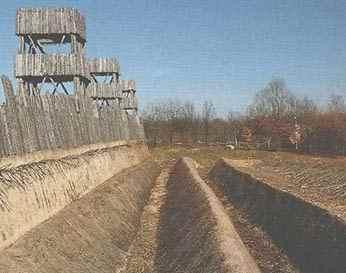
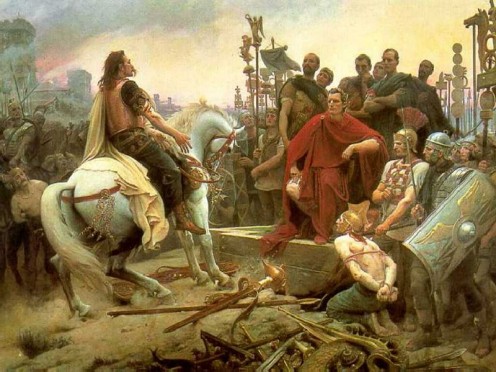
Inside the fort, things were getting bad for the solders and citizens of Alesia. The Gaul leaders decided to send the women and children out hoping that Caesar would feed them and/or let them leave to find food elsewhere. Caesar refused, but now Vercingetorix refused to let them back inside the city trying to make them Caesar's problem. Now the women and children were dying between the walls of the city and the circumvallation. Inside the city walls, the men threatened to surrender, but their reinforcements arrived outside the contravallation. Vercingetorix finally broke and took the women and children back inside his own walls.
The Gauls then put on a two-sided attack with 60,000 troops fighting to get inside the contravallation while Vercingetorix's 80,000 men fought from the city walls. Fighting went on for days, and the Roman troops, who were now also under siege, were growing hungry and tired. The Gauls outside the contravallation then found an opening in the wall that Caesar had tried hard to keep hidden. (In the map, the weakness is within the red circle) At the same time, Vercingetorix led an attack from the inside. Caesar beat back Vercingertorix, but the opening in the contravallation was about to fail. Desperate, Caesar took about 6,000 cavalry troops outside the contravallation and started attacking the Gauls from behind. Caesar's men had been on the verge of collapse, but now, seeing Caesar's red cloak leading a charge from the other side, they renewed their will. It did not take long for the Gauls to panic and attempt a retreat, but this played to the Roman strengths and the Gauls were destroyed. Once Vercingertorix saw that his help had been defeated, along with the starvation inside the city, he surrendered presenting his weapons to Caesar. With this battle, the Gauls had been conquered and made no further attempts to fight the Romans.
Civil War: Caesar vs. Pompey
Though Caesar was now being hailed a hero for his war efforts, the Triumvirate was falling apart. Now that Julia was dead, Pompey was pulling away. Then in 53 BC, Crassus was killed in battle. In Rome, the people were starting to panic and news was swirling that the Senate would offer Pompey the position of dictator. In a last ditch effort to save his relationship with Pompey, Caesar offered his great niece Octavia in marriage, despite the fact that she was already married to another man. Pompey rejected the offer, as he was moving his alliances back toward the Optimates.
In 52 BC, the troublemaker Publius Clodius was killed which sparked even more chaos in Rome. The Senate House was burned down by Clodius's supporters. Pompey took charge in his usual brutal style, but the Senate was able to stop short of naming him dictator, which would have left him free to do as he pleased without ever being held accountable for it. He was given the position of sole consul. This meant that if he went too far, he could be held accountable once/if he left public office.
Pompey started making changes in Rome while Caesar was still battling Vercingetorix, all of them started going against Caesar while he was still in Gaul and unable to do anything about it. These changes included a law that could have resulted in legal action against Caesar for the election bribes paid during his run for consulship. Caesar tried to run for consul again to prevent prosecution, but Pompey took steps prevent him from running in absentia, while not in Rome, even though it had been allowed before.
Pompey, thinking Caesar was now defenseless against prosecution, ordered Caesar to disband his military and return to Rome. It was 50 BC and Caesar knew he could not go back to Rome without the protection of an army or a political position. He refused to disband his men, so Pompey charged his enemy with insubordination and treason for refusing to follow his command.
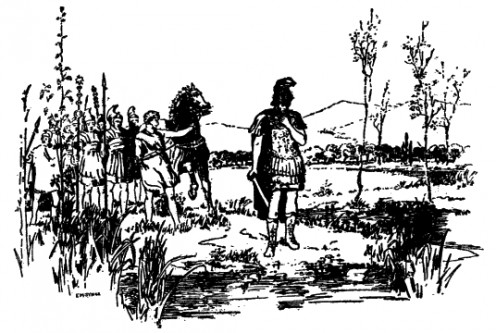
On January 10, 49 BC, Caesar lead him men across the river boundary separating Gaul and Italy. This simple act of crossing the Rubicon, was a declaration of war against Pompey. Historians claim that Caesar declared, "The die has been tossed," meaning that whatever happens will happen. They have reached the point of no return.
Despite declaring that he could raise an army capable of defeating Caesar just by stomping his foot, Pompey ordered the military to leave Rome preferring to fight in the south near Brundisium. Some of the other military leaders, like Scipio and Cato the Younger, showed little faith in Pompey and went even farther south.
When Caesar reached Rome, he was declared dictator on the basis that Pompey and many of the others in the military and Senate had fled. Mark Antony, who had been by Caesar's side all through his time in Gaul, was appointed Master of the Horse, which was second in command. Caesar elected to be named sole consul and relinquished his dictatorship. In the meantime, Pompey had managed to leave Italy and flee to Spain where he stirred up resentment against Caesar then went to Epirus in Greece. Having made some alliances in Macedon during a previous campaign in Greece, Pompey arranged for a fleet to assist him.
Instead of instantly taking off after Pompey, Caesar stayed in Rome and built up his resources. He needed a bigger army and a fleet of ships. While waiting on the ships to be built, Caesar took some of his forces to Spain to regain control of the territory and eliminate any problems from them while he went after Pompey. Upon returning to Rome and finding the ships still not done, Caesar decided not to wait. He would make two trips across the Adriatic Sea with his men in the middle of winter. Most would have considered this an impossible task, but on the first trip, Caesar was able to sail right through Pompey's blockade, which was lead by Caesar's old co-consul Bibulus. On the attempt to return the ships to Rome for the other half of the men, however, the ships were attacked and burned.
This left Caesar in a terrible spot. He only had half of his men, and Greece was working on Pompey's side of the war. Knowing he was in dire straits, Caesar attempted to negotiate peace with Pompey, but Pompey would have none of it. Soon, however, Mark Antony, who had been overseeing the army left in Italy, managed to break the blockade and joined Caesar in Greece with the remaining troops. This set the stage for a showdown at Dyrrhachium.
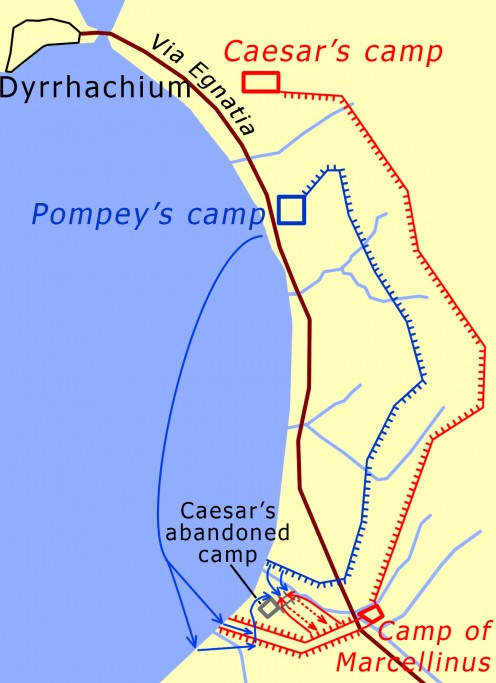
Battle of Dyrrachium
Pompey had picked an excellent spot to make a stand. Dyrrachium had hills all around except for the sea at its back. This meant Caesar would be easily wiped out if he advanced on the city. Instead, he decided to use the same siege technique that had worked for him at Alesia. Caesar's troops built a wall around the city. Pompey had his men build a wall as well. A standoff began with minor action in no man's land, but it took longer for the siege itself to have any effect. Caesar had access to the local farmland, but Pompey had cleared most of it before Caesar arrived. Pompey on the other hand had access to the sea, but there were many necessary items not easily carried by ship, like fresh water. The standoff continued until the gardens were ready to harvest again. If Pompey waited, Caesar would have all the food his troops needed.
Pompey found the weak point of Caesar's wall, just as the Gauls had. It was at the point where his wall reached the sea opposite of Caesar's main camp. Pompey used the sea to transport his troops and attacked from this point. Caesar's men were quickly overcome and had to fall back. Caesar sent Mark Antony with reinforcements then went on the attack. For Caesar, though, Pompey's numbers were too great, and eventually they had to withdraw from the battle. Pompey, however, did not go after Caesar for a final deathblow. Historians say that Pompey was satisfied with handing Caesar a tactical defeat, Caesar on the other had is said to have remarked, "Today the victory had been the enemy's, had there been any one among them to take it." Today, strategists all agree that Pompey made a fatal mistake by not finishing the job at Dyrrhachium.
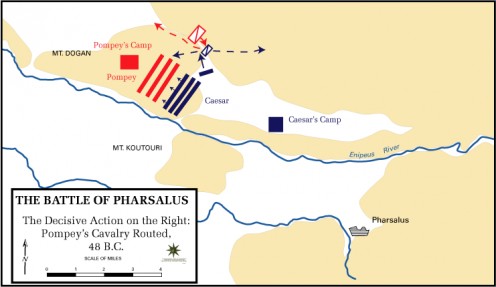
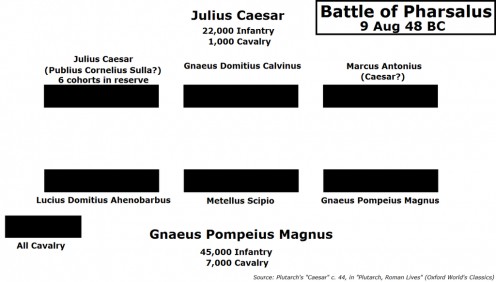
Battle of Pharsalus
Caesar had to capture a Greek city in order to regroup with his men and plan for their next attack. Pompey's troops went after Caesar, but Pompey resisted forcing a battle despite demands from the senators who were on the run with him. When he finally trapped Caesar's troops near Pharsalus, Pompey wanted to starve them out and force Caesar to surrender, but the others forced him to go on the offensive as he had not only greater numbers but also high ground.
After both sides lined up for battle, Caesar knew that cavalry would be key to winning and held back troops to support his own. Pompey held his troops back, insisting that Caesar's troops march across the long distance between to two lines, so they would be tired. Caesar's troops, on the other hand, stopped and took a little break halfway across the battlefield since Pompey's troops did not come out to meet them.
When both sides finally met, Pompey's cavalry charged and were successful in pushing Caesar's personally lead cavalry back until the reinforcements charged into the fight. Pompey's cavalry quickly knew they were in trouble when Caesar's reserves came after the horses with their pila, javelins. When they broke and ran, Pompey could see it coming. Caesar's cavalry was now free to come at Pompey's lines from behind meaning the battle was already won. Pompey broke ranks, grabbed his family, all the gold he could carry and ran. Unlike Pompey who halted the fight when the enemy was on the run, Caesar's troops took the enemy camp leaving the remaining members of the Roman Senate no chance to regroup.
Pompey fled to Egypt with his wife and family, but the ruling pharaoh was already embroiled in a battle with his own sister. Ptolemy XIII was concerned about harboring Pompey when Caesar was after him. Instead of welcoming Pompey on Egyptian soil, he was executed instead. His head was then taken to Caesar who was outraged that his former son-in-law was treated so badly. The men responsible were then executed by Caesar.
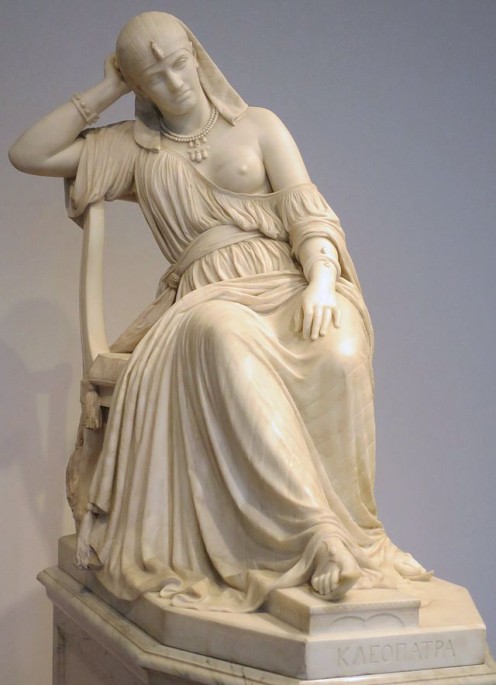
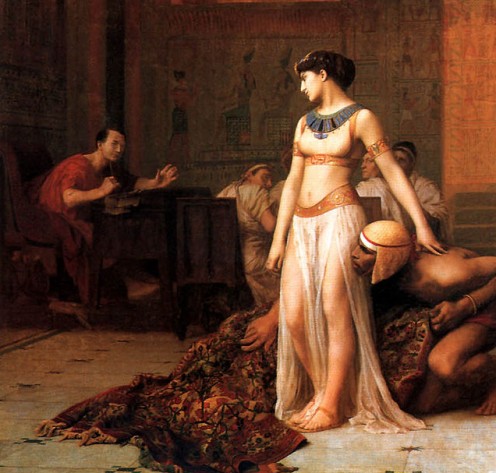
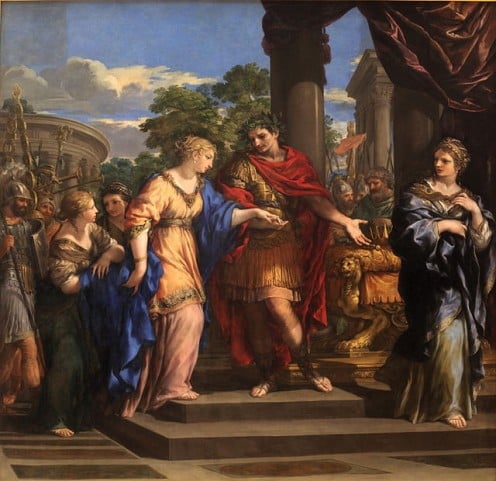
Cleopatra
When Caesar arrived in Egypt and was presented with Pompey's head, he quickly became involved in the fight between the children of Ptolemy XII. Following their father's death in 51 BC, Cleopatra VII and her brother Ptolemy were named co-rulers of Egypt. Cleopatra was 18 and her brother 10 when they were forced to marry and take the throne. They took the throne in March and by August; Cleopatra was trying everything she could to cut her younger brother out of the picture. It is possible that the girl could have assumed sole authority over Egypt if she had not insulted the Roman troop stationed in Egypt. The Roman's placed her brother back on the throne as revenge for her turning over some of their men to Marcus Bibulus for killing his son in Syria. Cleopatra was then forced to leave Alexandria.
When Cleopatra learned that Julius Caesar was in Alexandria and extremely upset with her brother over the killing of Pompey, the now 21 year-old saw it as her chance to regain power, but she had been exiled from the city. Legend has it that she had her keepers roll her up inside of a large carpet and smuggle her into the Roman leader's room. Throughout history, stories had been told of Cleopatra's beauty, but more recently historians have come to believe that it had to be more than beauty that captivated the heart of the most powerful men in the world, like Julius Caesar and Mark Antony. Regardless of what Caesar saw in the girl, she quickly became his mistress and they had a son, Ptolemy Caesar. The boy was known as Caesarion.
Caesar's original plan for Egypt had been to do away with Egypt's independent status and make it a province of Rome. Following the birth of his son to Cleopatra, however, he decided to place her back on the throne, as his mistress would be a better ally then any Roman governor. Ptolemy and his supporters still had control of Egypt's military, however, and placed Alexandria under siege. The siege lasted only a few months until Caesar received military support from an ally in Asia Minor. A final battle was fought along the Nile with Caesar's troops easily defeating the Egyptians. Ptolemy is believed to have drowned trying to escape.
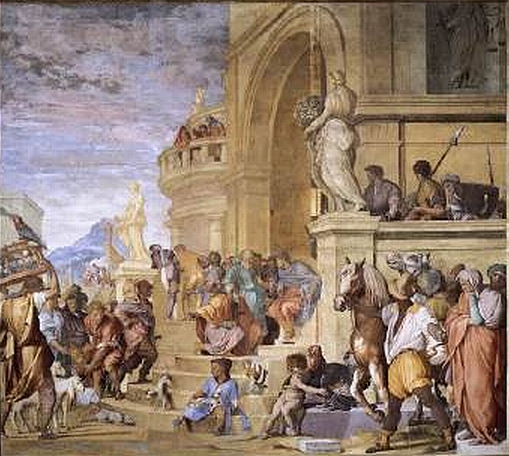
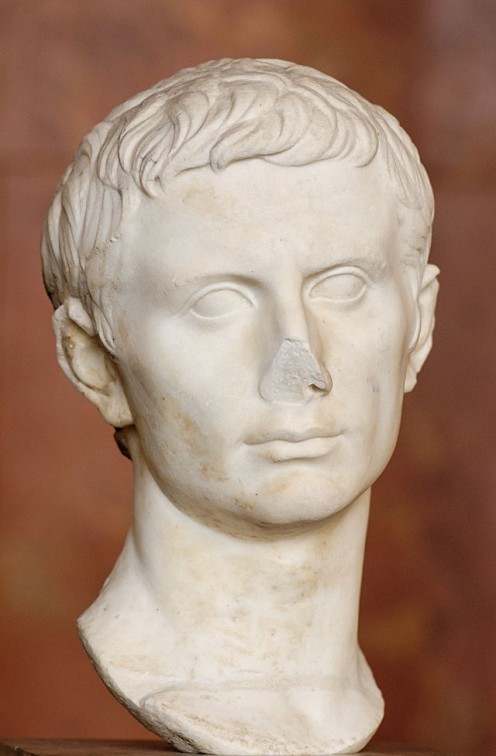
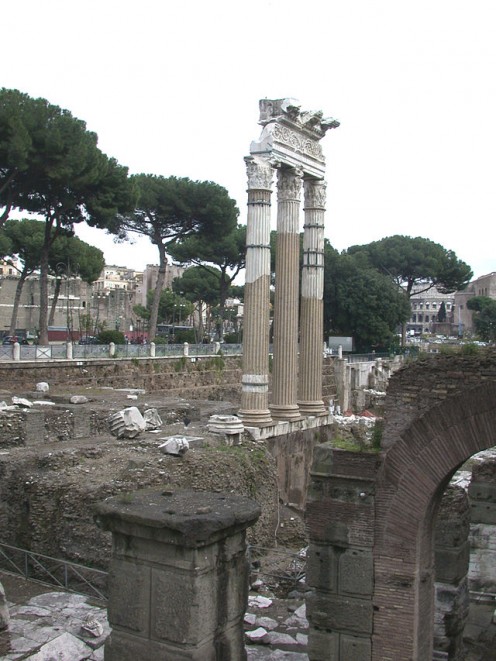
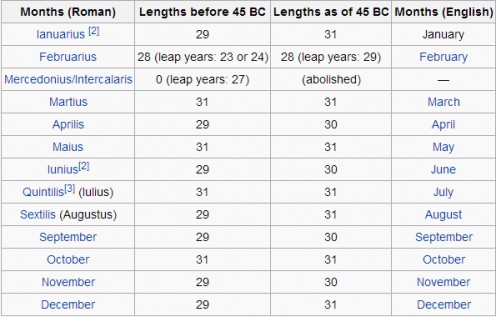
Returning Hero Dictator
While still in Egypt, Caesar was once again named dictator. The term was to last one year, but when Caesar defeated an enemy in Asia Minor and what was left of Pompey's troops in Africa, being lead by Cato the Younger, he was named dictator for ten years before he even returned home. He had one last matter of chasing down Pompey's son who was hiding in Spain, and by 45 BC, Caesar had eliminated all of his enemies.
The Senate wasted no time honoring their dictator. He was finally given the triumph he had been denied before; though some disapproved because it was Romans he defeated not foreigners. On his initial return to Italy, Caesar set about taking care of business. The first of which was writing his will. Though Cleopatra wanted their son Caesarian named as his heir, Caesar instead selected his great nephew Gaius Octavius, or Octavian. Caesar also set about on his three goals for the Republic. He wanted to establish order in all of Rome's provinces by eliminating constant uprisings. He wanted to create a central government that would do what was best for Rome as a whole instead of what would put the most money in the pockets of the rich aristocrats. He also wanted to bring all of Rome together making everyone everywhere Roman citizens.
Caesar thought that by proving his military power through the defeat of Pompey's greater army, he had accomplished his first goal. In order to create his strong central government, however, he would have to take on more authority as dictator to get things done. His changes like debt restructuring, restrictions on luxury purchases and rewards for increasing the population of Rome, or having babies, were all sound moves, but Caesar's actions were starting to concern many of the Senators.
Caesar started some building projects including the Forum of Caesar. The Forum included the Temple of Venus Genetrix. Caesar selected the goddess Venus as he considered himself an ancestor through her son Aeneas. The temple to the goddess of love included many works of art including a golden statue of Cleopatra done up as the Egyptian goddess Isis.
Caesar also wanted to create an updated calendar to be used by all the people of Rome. He threw out the old Roman calendar, which had been designed around the moon, and adopted the Egyptian calendar designed around the sun. The new calendar had 365.25 days with one leap day added to the end of February every four years to account for the quarter of a day not recognized in each year. Caesar also added two months to account for changes in seasons.
Caesar did make some missteps, however, that supported his opponent's fears. Though he now had the power to veto the Senate, when members of the plebian tribune objected, he kicked them out of the tribune. The plebs, or lower class, had been given the ability to veto the consuls and Senate in 494 BC. Despite the fact that most of Caesar's changes benefited the plebs, the action of removing those that opposed him was proof that he could do anything he wanted.
He also made himself the Perfect of Morals. This meant that he would be the judge of morality without having to be moral himself. This bothered some as Caesar's mistress and illegitimate son, Cleopatra and Caesarian, frequently visited Rome and everyone knew about the relationship. Though Caesar had broken no laws, as men were allowed to have mistresses and Rome only recognized marriages between two Roman citizens, which Cleopatra was not, it was still considered a disgrace for the pharaoh to flaunt herself in front of Caesar's wife Calpurnia. Rumors were also rampant that Caesar was sleeping with the wives of all the Senators in Rome, though none were ever proven true.
Caesar also used the position of Perfect of the Morals to make appointments to the Senate. Eventually, he was also given the authority to appoint consuls and tribunes, though these did not go into effect during his lifetime. As Caesar was appointing only those who would agree with him, he was essentially eliminating the democratic process by taking away the right of the people to chose their representatives.
Assassination
As Caesar continued taking steps to unite all of Rome's provinces into one empire, many of the senators where growing worried that the dictator would eventually seek a greater title. Plans were being made for an assassination including some of his own family members, but Caesar did receive warnings. An Etruscan seerer named Spurinna warned the Roman leader that an attempt on his life would be made by the Ides of March, March 15th. This warning became well known as "Beware the Ides of March." His wife Calpurnia is said to have also had a premonition on the morning of the 15th and pleaded with her husband not to attend the Senate meeting that morning. She even called on Decimus Junius Brutus Albinus, a relative of her husband; to notify the Senate that Caesar was ill not knowing he was one of the main conspirators. Her husband, however, would have none of it and left with Decimus Brutus for the theatre where the meeting was to take place. Mark Antony had also received warning of the plot and tried to head his dear friend off before he could arrive, but was himself stopped before he could intercede. It is said that Caesar passed Spurinna on the way to the theatre that morning and remarked that the Ides were here and he was still alive to which the seerer replied, "Arrived but not passed."
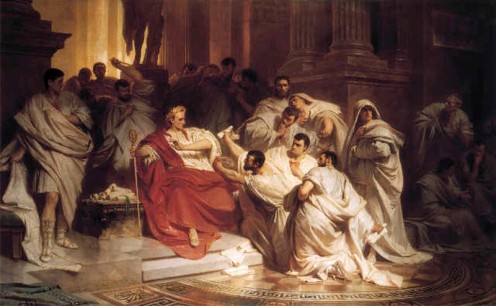
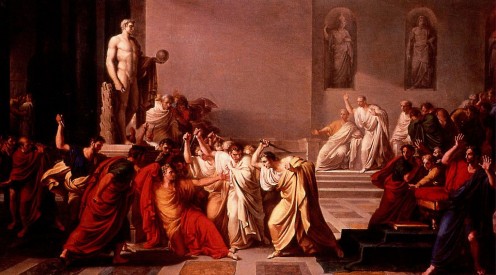
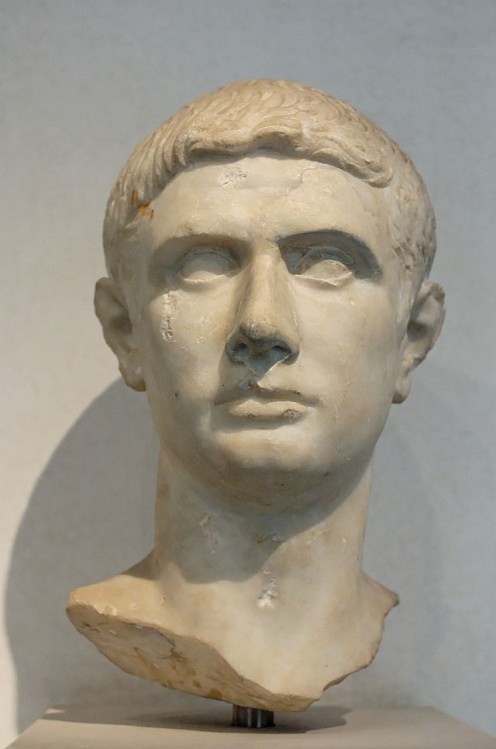
Inside the Senate, one senator handed Caesar a petition while the others gathered around. He then grabbed Caesar's shoulders as another pulled out a dagger. Caesar caught the arm of the first to strike and cried out, "What are you doing?" The other senators now collapsed on Caesar stabbing him so violently that they stabbed each other as well. Twenty-three stabs landed in their intended target. Legend says that when Caesar saw that Marcus Brutus was standing over him with the assassins, that he pulled his cloak over his face saying, "Et tu Brute?" or "and you Brutus?" showing his disappointment that the young man could have participated in the act. The historian Plutarch, however, insisted that Caesar only covered his face after seeing Brutus.
Marcus Brutus was the son of one of Caesar's lovers, Servilia Caepionis. Servilia was the half-sister of Cato the Younger and began an affair with Caesar sometime before 64 BC. The two remained lovers until Caesar's death, and he was very close with her son, Brutus, by her first husband and three daughters by her second the last of which, Junia Tertia, was actually believed to be the daughter of Caesar himself. Caesar thought of Brutus as a son despite the fact that Brutus followed Pompey to Greece when the civil war broke out between the two leaders. Whether Caesar actually said anything to Brutus during the execution or not, it is certainly understandable that he could not watch the man he loved kill him.
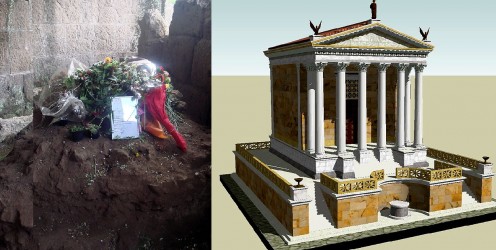
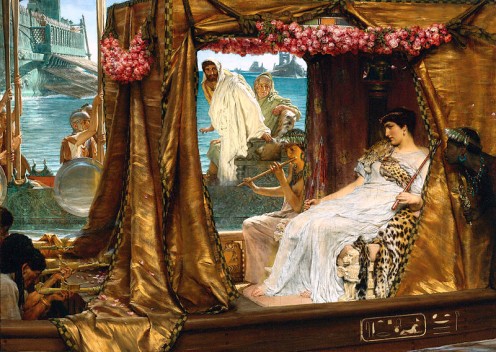
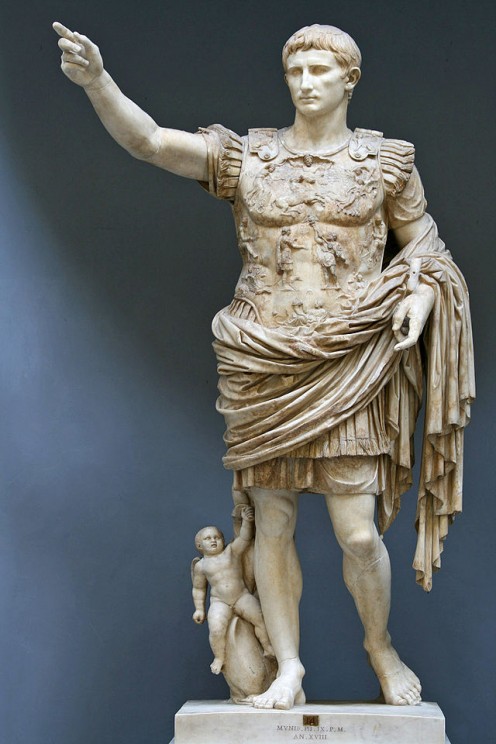
Most of the senators ran once the deed was done. Brutus, who had only agreed to the plot out of fear that Rome was turning into a kingdom once again, ran to the Capitol declaring that Rome was free, but everyone had miscalculated the opinion of the people. There was no cheering only silence. The people were in shock that Julius Caesar was dead. His body laid in its own blood for hours before the people came to their wits. The people then seized his body and carried it to a Forum where he was cremated on the spot. The Temple of Julius Caesar would eventually be built on the exact spot. Mark Antony, trying to take advantage of the loss of Caesar to further his own career, fueled the anger of the lower classes. Furious at the death of their hero, the fire got out of hand and many of the men went after Brutus and Cassius, who also happened to be the husband of Junia Tertia.
Brutus and Cassius fled to Greece. Antony tired to raise an army to go after the men, but he needed money and assurance that he would face no retribution for killing Caesar's assassins. The only way to get this was from Caesar's estate. Now he learned that it was all in the hands of Octavian. Antony and Octavian agreed to work together, along with Caesar's long time friend Lepidus, the leader of his cavalry. The Second Triumvirate was then created. The Triumvirate had Caesar named a god, Divus Iulius, made it legal to kill his assassins then together defeat the forces of Brutus and Cassius.
Following the defeat of the Liberators, as the assassins called themselves, Gaius Julius Caesar Octavianus, as he was now known, returned to Rome and set his sights on taking control of the empire. Antony, knowing he needed funding to make a push at the rule of Rome, went to Egypt to take advantage of Cleopatra's anger at losing her lover. Antony and Cleopatra would join not only in war against Octavian and but in love for one another, but eventually Octavian would defeat the two of them and have himself declared Caesar Augustus, the first emperor of Rome.







